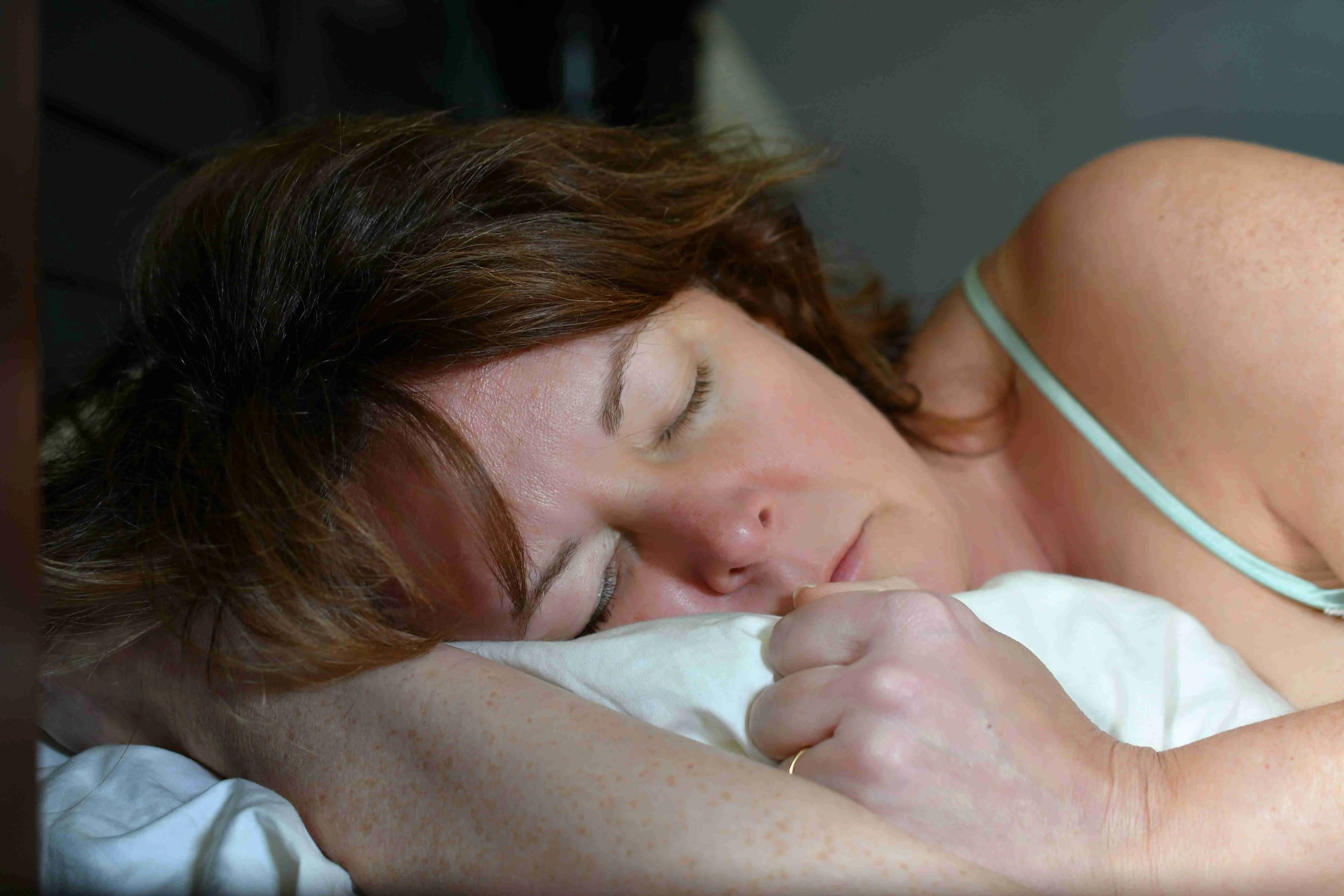Sleep is important for overall health, as much as nutrition and exercise are, supporting both physical and mental well-being. The body depends on sleep to complete vital functions that include energy rebalancing, emotional control, and supporting daily restorative processes.
Beyond general health advantages, sleep produces deep effects on people who suffer from distinct medical conditions. People with Multiple Sclerosis (MS) experience sleep challenges beyond basic restorative requirements, often struggling with sleep disruption due to MS symptoms.
The symptoms of MS within the central nervous system create severe disruptions that prevent adequate sleep both in terms of duration and sleep quality.
This article examines both the sleep quality disruptions caused by MS in addition to its relationship with neurological and physical health. We will also explore different factors that lead to sleep issues in MS patients and offer strategies to help enhance their overall health.
Understanding Multiple Sclerosis

MS functions as an autoimmune disease that harms the central nervous system tissues, including the brain and spinal cord structures. The immune system attacks the protective nerve covering known as the myelin sheath, which impairs the communication between the brain and the body. These disruptions produce different neurological symptoms, including vision problems, muscle weakness, cognitive problems, and coordination difficulties.
The diagnosis process of MS includes neurological tests, MRI scans, and spinal fluid analysis. MS follows different patterns of progression since some people only have mild symptoms, but others face severe disabilities. The disease presents through distinct patterns in which relapsing-remitting MS emerges as the most typical form that causes symptoms to recur intermittently between remission periods.
Learning about MS represents a critical step to effectively handle the disease while reducing its lifecycle impact on everyday activities because the disease modifies sleep patterns, which results in health and lifestyle changes.
How MS Affects Sleep
MS leads to major sleep disturbances because it affects several components of the nervous system. Patients with MS regularly experience disrupted sleep patterns that intensify their symptoms, which reduces sleep efficiency and their overall life quality.
Neurological Impact on Sleep Patterns
The central nervous system lesions created by MS prevent the brain from properly managing its sleep-wake cycle. The sleep disruptions lead patients to have difficulty falling asleep, staying asleep, and their ability to achieve restorative sleep.
Neurological damage disrupts both melatonin production and regulatory sleep hormones, leading to more complicated sleep patterns.
Common Causes of Sleep Disruptions in Multiple Sclerosis Patients
MS sufferers face sleep disturbances because of direct and indirect disease effects on their neurological and muscular systems, worsening MS and sleep problems.
- Neuropathic Pain: Neuropathic pain develops in MS because the disease impairs nerve fibers. Nighttime neuropathic pain tends to be especially severe, thereby making it difficult for individuals to attain a comfortable sleep position and maintain restful sleep.
- Muscle Spasms & Spasticity: The occurrence of muscle spasms together with spasticity represents a common challenge in MS that generates abrupt and distressing muscle contractions. Spasms become more intense throughout the night, thus sleep interruption through sudden awakenings.
- Bladder Dysfunction: The bladder complications encountered by people with MS force them to wake up often throughout the night to visit the restroom. Both sleep architecture and incontinence-related sleep anxiety become disrupted by this condition.
- Depression & Anxiety: MS can cause both depressive moods and feelings of anxiety that are directly linked to disturbed sleep patterns. Anxiety causes difficulty falling asleep, while depression causes changes in sleep patterns that could result in either insomnia or hypersomnia symptoms.
- Temperature Sensitivity: People with MS usually develop a heightened sensitivity to temperature changes that influence their ideal sleeping environment preferences. Having trouble controlling body temperature makes it challenging to fall asleep and leads to nighttime awakenings when the bedroom temperature is not suitable.
Common Sleep Disorders in MS Patients

Patients dealing with MS frequently encounter sleep disorders, worsening their MS sleep problems, causing symptom complexity, and reducing their general life quality.
- Insomnia: Insomnia represents the most prevalent sleep disorder affecting patients with MS. A person with insomnia struggles to fall asleep or maintain continuous sleep throughout the night. MS patients experience insomnia because of several causes, which include the presence of pain, muscle spasms, anxiety, and medication side effects. A successful approach to insomnia treatment demands proper sleep hygiene, cognitive-behavioral therapy for insomnia (CBT-I), and sleep medication.
- Sleep Apnea: Sleep Apnea affects more people with MS compared to the general population. The condition leads to interrupted breathing during sleep, which affects normal sleep patterns and causes fatigue. Patients with sleep apnea require the application of continuous positive airway pressure (CPAP) machines and alternative breathing support devices for treatment.
- Restless Leg Syndrome: MS patients experience Restless Leg Syndrome (RLS), which interrupts their sleep because it causes unpleasant sensations in their legs that occur especially when they rest. The prevalence of this syndrome exists among MS patients because it shares neurological pathways as well. Multiple treatment approaches for RLS consist of lifestyle modifications, iron supplementation for deficiency, medication usage to improve dopamine pathways, and improving sleep patterns.
- Circadian Rhythm: MS patients, especially those who struggle with mobility issues, experience Circadian Rhythm Disorders because they do not receive proper natural light exposure. The body’s internal clock faces disruption, which results in disrupted sleep cycles. Treatment includes light therapy as well as regular schedules for sleep and wake timing.
- Narcolepsy: Narcolepsy develops less frequently among people with MS but causes both excessive daytime sleepiness and sudden muscle weakness known as cataplexy. People with narcolepsy receive treatment by taking medications that control wakefulness while regulating sleep cycles as well as scheduling naps to manage their daytime sleepiness.
The Impact of Sleep Deprivation on Multiple Sclerosis Symptoms
MS patients encounter worse medical symptoms when they experience sleep deprivation, which affects their neurological system and general well-being:
- Increased Fatigue: The combination of fatigue and insufficient sleep creates overwhelming exhaustion, which heavily affects the physical abilities and life quality of MS patients.
- Impaired Cognitive Function: The cognitive abilities of MS patients suffer major deterioration as sleep deprivation depletes memory and decision-making capacity and reduces concentration skills.
- Heightened Pain Sensitivity: Insufficient sleep causes people to become more sensitive to pain. The failure to manage pain effectively becomes especially harmful for individuals with MS since pain control remains fundamental to their treatment plan.
- Emotional Instability: Emotional disorders become more severe when people with MS experience sleep deprivation because the condition leads to increased irritability, higher anxiety, and depressive symptoms.
- Weakened Immunity: The body requires sufficient sleep to develop a strong immune system function. Insufficient sleep among MS patients weakens immune defenses against infection, making them more susceptible to health problems and worsening their MS symptoms. Learn more about How Sleep Affects Immunity.
- Poor Physical Coordination: Neurological health and maintaining motor function depend on sleep. Insufficient sleep affects patients with MS by impairing their coordination and balance, which raises their risk for falls and subsequent injuries.
Challenges in Managing Sleep with Multiple Sclerosis
The relationship between pain, sleep problems, and fatigue symptoms needs a complete understanding of proper MS treatment. Sleep disturbances resulting from nighttime pain and muscle spasms cause multiple awakenings throughout the night. The fatigue in MS results from disease symptoms and sleep quality problems.
Treatment approaches for these issues require medications, therapy for pain reduction, and improving sleep habits while establishing a consistent sleep schedule to improve sleep quality.
Pain and Sleep Disturbance
The pain experienced by MS patients originates from nerve damage, which interrupts sensory processing, producing stabbing, burning, and tingling sensations that intensify, especially at night. People with MS also commonly experience pain due to muscle spasms, which prevents them from maintaining suitable sleeping positions.
Successful management of sleep disturbances caused by pain requires medical and non-medical treatments. Medical treatment includes anticonvulsants that address neuropathic pain and muscle relaxants that work for spasticity management.
Non-medical treatment includes physical therapy to optimize body mechanics and reduce muscle tension before sleeping and heating pads for pain alleviation. CBT can also successfully manage pain perceptions while helping people establish improved sleep habits.
Fatigue Management
Fatigue exists in multiple forms in MS patients since it intensifies with poor sleep, but patients can also experience fatigue independently from sleep quality due to the disease itself. The continuous neural repair and immune system overreactivity can also produce this symptom.
Fatigue management requires methods that enhance energy levels and improve sleep quality. Sleep quality improves when individuals maintain regular sleep schedules for their bodies to develop better internal clock control.
The prevention of overexertion becomes possible through scheduled rests and activity priority management. In addition, people who exercise moderately throughout the week will experience increased energy and better nighttime sleep.
Strategies to Improve Sleep with MS

Managing MS Symptoms That Disrupt Sleep
The effective treatment of MS symptoms that disrupt sleep results in better sleep quality and improved overall well-being.
- Optimize Pain Control: Healthcare providers must reassess the pain management plans of their patients to verify the effectiveness of pain treatment strategies. The management plan can include both pharmacological methods, such as anticonvulsants for neuropathic pain, and non-pharmacological methods, like heat therapy and acupuncture.
- Reduce Muscle Spasms: Stretching and massage therapy along with proper muscle relaxant administration can reduce nighttime spasms that cause disturbed sleep.
- Address Bladder Issues: Reducing fluid intake before bed as well as consulting a healthcare provider about medications for bladder control will help minimize nighttime urination interruptions.
- Stabilize Mood Fluctuations: Therapeutic activities that reduce anxiety and depression, including mindfulness or relaxation exercises, will help achieve better sleep quality.
- Manage Medication Side Effects: Consult a neurologist to modify medications that affect sleep, such as some muscle relaxants that lead to unexpected drowsiness. Learn more about Sleep Medication.
- Regular Neurological Assessments: Regular monitoring of treatment plans by a neurologist helps identify and adjust sleep-affecting symptoms to maintain therapeutic alignment with current health conditions.
Optimizing the Sleep Environment
Patients with MS experience heightened sensitivity to sleep disturbances, thus an ideal sleep environment helps enhance their sleep quality.
- Temperature: MS patients should maintain a cool bedroom since they frequently struggle with heat regulation. Utilizing air conditioners or fans allows patients to create a cold environment that reduces sleep disruptions.
- Mattress and Bedding: Purchase a mattress made to provide body support and cooling properties. Choose mattresses built for heat-sensitive sleepers since these products maintain a comfortable temperature throughout the night. Learn more about the Best Cooling Mattresses.
- Lighting: Exposure to bright and blue light during evenings should be minimized using dimmer switches and blackout curtains. Diminishing light exposure assists in melatonin production, which regulates sleep.
- Noise Reduction: Soundproofing combined with white noise machines or earplugs reduces noise pollution and establishes a peaceful sleeping environment.
Sleep Hygiene Practices
Sleep hygiene practices lead to improved sleep patterns and higher quality sleep for MS patients.
- Regular Sleep Schedule: You need to maintain a regular sleep schedule even on weekends by sleeping and waking at consistent times each day to help your body maintain its internal clock.
- Bedtime Routine: A relaxing bedtime routine should include reading, taking warm baths, and performing relaxation exercises, including deep breathing or gentle yoga.
- Diet and Electronics: Heavy meals and caffeine should be avoided before bedtime because they disrupt sleep. Electronic devices should also be avoided before bedtime because their blue light interrupts melatonin production in your body.
FAQs
Does multiple sclerosis affect your sleep?
Multiple sclerosis (MS) creates a significant disruption in the sleep patterns. Neuropathic pain, muscle spasms, and nocturia disturb sleep patterns, which leads to struggles with both falling asleep and staying asleep.
How much sleep do MS patients need?
Patients with MS need the typical sleep duration of 7-9 hours, which corresponds to the recommended rest period for most adults. Symptom management and medication effects may produce variations in individual sleep needs, so healthcare providers must customize specific sleep schedules.
What are the best sleep aids for multiple sclerosis?
Effective control of sleep problems for MS patients depends on proper medication use, ideal bedding conditions, regulated room temperature, and relaxation practices including mindfulness meditation and gentle yoga.
Can MS cause sleep paralysis?
The sleep disturbances that result from multiple sclerosis do not directly cause sleep paralysis; however, such disturbances, including disrupted sleep architecture or frequent awakenings, create conditions that lead to increased occurrences of sleep paralysis.
What is the best way to sleep with MS?
MS patients must establish a relaxing sleeping environment, high-quality bedding, cool room temperature, and reduced light and background noise. In addition, good sleep hygiene includes avoiding caffeine and eating lightly before bed while maintaining regular sleep times to improve sleep quality.
Conclusion
MS patients need to understand how the disease affects their sleep patterns so they can develop strategies to reduce these negative effects. Sleep disturbance symptoms, optimal sleep environment, and proper sleep hygiene practices are important for effective management.
Sleep management for MS requires setting regular sleep times, using calming bedtime routines, and altering the sleeping environment for better comfort.
By adapting these strategies, people with MS will achieve better sleep quality, which will result in improving their general health. Healthcare providers experienced in sleep control and MS management need to work together with patients to create personalized sleep strategies.
Jessica H.
Jessica is a reviewer, writer, and sleep enthusiast at Sleepiverse. Jessica graduated with her master's degree in Nursing research and education. She is a registered nurse and currently works in the Intensive Care Unit. Since becoming a nurse, Jessica has worked the night shift, which means a disrupted sleep schedule. Knowing she needed to function at her best while caring for patients at night, she spent a lot of time researching how to sleep well with a difficult schedule.


